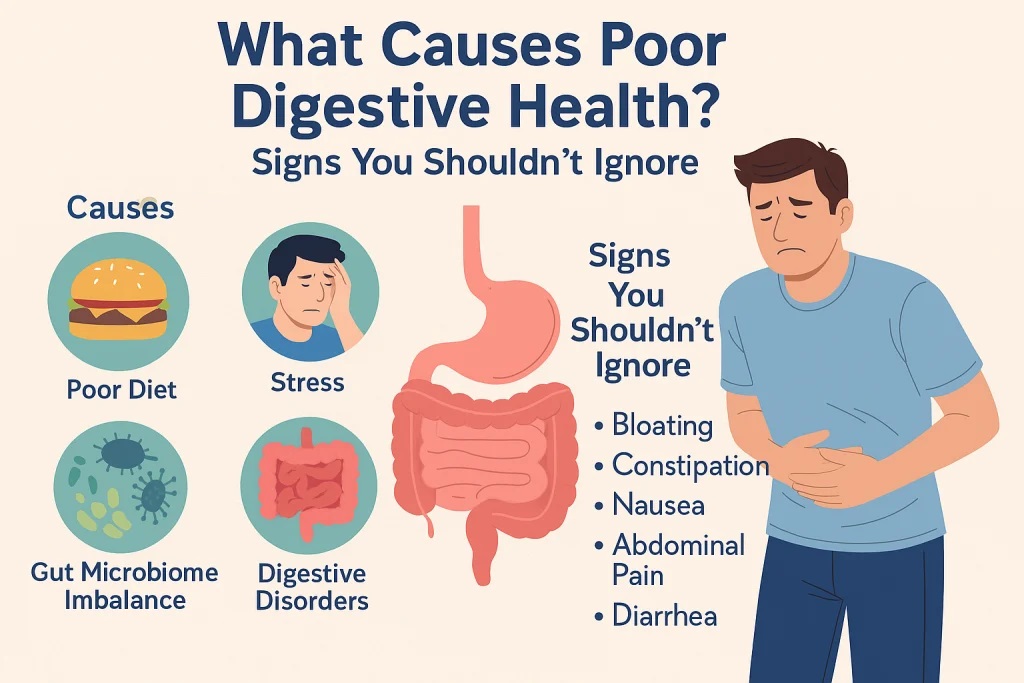The science of metabolism is the complex biochemical process that converts what we eat and drink into energy. At Local MD, we believe understanding how metabolism works can empower you to make smarter health choices and achieve sustainable weight management. Have you ever wondered why two people can follow the same diet and exercise routine — yet one sheds pounds quickly while the other struggles to see results?
In this detailed guide, we’ll explore what metabolism is, what affects it, and why it varies from person to person, along with evidence-based strategies to improve metabolic efficiency.
What Exactly Is Metabolism?
Metabolism is the set of chemical reactions that occur within every cell to sustain life. It determines how efficiently your body burns calories and converts nutrients into usable energy. The total energy your body expends each day is known as your Total Daily Energy Expenditure (TDEE), which consists of three main components:
-
Basal Metabolic Rate (BMR):
This is the energy your body uses at rest to maintain essential functions such as breathing, circulation, and cell repair. BMR accounts for 60–75% of your daily calorie burn. -
Thermic Effect of Food (TEF):
Digesting and processing food also requires energy. TEF contributes about 10% of daily calorie expenditure. -
Physical Activity Energy Expenditure:
The energy used during movement, exercise, and daily activities makes up the remaining 15–30%.
The sum of these factors defines your metabolic rate — the speed at which your body burns calories.
Why Metabolism Differs Between Individuals
The reason some people lose weight faster than others isn’t just about willpower — it’s largely influenced by biology, genetics, and lifestyle. Let’s break down the key factors that affect metabolic rate.
Genetics and Metabolic Efficiency
Genetics play a significant role in determining your resting metabolic rate (RMR). Some individuals are genetically predisposed to have more metabolically active cells, particularly within muscle tissue. Others may have a genetic makeup that promotes energy conservation, making weight loss more challenging.
Specific genes, such as the FTO gene (fat mass and obesity-associated gene), have been linked to slower metabolism and increased fat storage tendencies.
However, genetics are not destiny — while you can’t change your DNA, you can optimize your lifestyle to work with your genetic tendencies rather than against them.
Muscle Mass vs. Fat Mass
One of the most powerful determinants of metabolism is muscle mass. Muscle tissue is metabolically active, meaning it burns more calories at rest than fat tissue.
-
One pound of muscle burns approximately 6–7 calories per day at rest.
-
One pound of fat burns only about 2 calories per day.
This is why people with higher muscle mass typically have faster metabolisms and find it easier to maintain or lose weight. Strength training, resistance exercises, and protein-rich diets are effective strategies to preserve or build lean muscle.
Age and Metabolic Slowdown
Metabolism naturally slows with age — primarily due to loss of muscle mass (sarcopenia) and hormonal changes. After the age of 30, adults can lose 3–5% of muscle mass per decade, leading to a gradual decline in calorie-burning ability.
In women, menopause also reduces estrogen levels, contributing to fat storage around the abdomen. For men, declining testosterone can slow metabolism and muscle repair.
Prevention Tip: Staying active, engaging in resistance training, and consuming sufficient protein can mitigate age-related metabolic decline.
Hormonal Regulation and Thyroid Function
The thyroid gland plays a central role in controlling metabolism through the release of hormones like T3 (triiodothyronine) and T4 (thyroxine).
-
Hyperthyroidism (overactive thyroid): Increases metabolism, leading to unintentional weight loss, anxiety, and heat intolerance.
-
Hypothyroidism (underactive thyroid): Slows metabolism, causing weight gain, fatigue, and cold sensitivity.
Other hormones such as insulin, cortisol, and leptin also influence how efficiently your body processes energy and stores fat. Regular health checkups can help detect and treat hormonal imbalances early.
Gender Differences
Men generally have faster metabolisms than women because they tend to have more lean muscle mass and less body fat. Additionally, testosterone enhances muscle growth, while estrogen promotes fat storage, particularly in the hips and thighs.
On average, men burn 5–10% more calories at rest compared to women of the same weight and age.
That said, women can still boost metabolism through resistance training, adequate sleep, and hormone-balanced nutrition.
The Role of Diet and Nutrition
Your food choices directly affect your metabolic efficiency. Some nutrients require more energy to digest, while others influence hormone activity related to metabolism.
Macronutrients and Metabolism
-
Protein: Has the highest thermic effect — your body uses about 20–30% of protein calories just to digest it.
-
Carbohydrates: Use about 5–10% of their calories for digestion.
-
Fats: Require only 0–3%, making them less thermogenic.
This explains why high-protein diets often support faster metabolism and better fat loss.
Meal Timing
Skipping meals or extreme calorie restriction slows metabolism because the body enters “energy conservation mode.” Instead, regular, balanced meals keep metabolic processes active.
Physical Activity and Exercise
Exercise is one of the most effective tools for stimulating metabolism. Both aerobic and anaerobic workouts contribute differently:
-
Cardio Exercises (Running, Swimming, Cycling): Burn calories during the activity and improve cardiovascular efficiency.
-
Strength Training: Builds muscle, which increases resting metabolic rate over time.
-
High-Intensity Interval Training (HIIT): Elevates metabolism for hours after the workout through a phenomenon known as Excess Post-Exercise Oxygen Consumption (EPOC).
Consistency is key. Even short bursts of movement throughout the day — like walking, stretching, or standing breaks — can make a significant impact on total daily energy expenditure.
Sleep and Metabolic Health
Sleep deprivation disrupts hormone balance, especially leptin (the satiety hormone) and ghrelin (the hunger hormone). When you’re tired, your body craves quick energy from sugary or high-fat foods, while your metabolic rate slows down to conserve energy.
Studies show that adults who sleep less than 6 hours per night are more likely to gain weight and develop insulin resistance.
Solution: Aim for 7–9 hours of quality sleep each night to support metabolic stability and appetite control.
Stress and Cortisol Levels
Chronic stress triggers the release of cortisol, a hormone that promotes fat storage — particularly around the abdomen — and breaks down muscle tissue, which slows metabolism further.
To manage stress-related metabolic disruption:
-
Practice mindfulness and relaxation techniques.
-
Engage in regular physical activity.
-
Maintain balanced meals to prevent emotional eating.
Metabolism Myths: Debunking Common Misconceptions
Myth 1: “Thin people have naturally fast metabolisms.”
Not always. Some thin individuals actually have slower metabolisms but balance calorie intake effectively. Others may move more subconsciously throughout the day (called non-exercise activity thermogenesis, or NEAT).
Myth 2: “Eating small meals frequently boosts metabolism.”
While frequent eating can help regulate appetite, studies show total calorie intake and food quality matter more than meal frequency.
Myth 3: “You can’t change your metabolism.”
While you can’t completely overhaul your metabolic rate, lifestyle changes — including exercise, diet, and sleep — can significantly enhance how efficiently your body burns calories.
Practical Medical Strategies to Support a Healthy Metabolism
At Local MD, we emphasize evidence-based methods to naturally boost metabolic health and maintain long-term weight balance.
Regular Health Checkups
Routine assessments of thyroid function, hormone balance, and blood glucose levels can uncover underlying issues slowing your metabolism.
Personalized Nutrition Plans
A diet tailored to your body type, age, and activity level ensures optimal nutrient absorption and energy efficiency. Consider consulting a registered dietitian to design a plan that supports both metabolism and overall health.
Strength Training
Incorporating resistance workouts at least 3 times a week helps build lean muscle mass and improves metabolic rate.
Hydration
Even mild dehydration can reduce metabolism. Drinking sufficient water — especially cold water — temporarily increases calorie burn through thermogenesis.
Balanced Hormone Management
If weight changes seem disproportionate, medical evaluation for hormonal imbalance (thyroid, insulin, or cortisol) can identify the root cause and guide treatment.
The Future of Metabolic Science
Modern research continues to reveal fascinating insights into metabolism, from gut microbiome influences to genetic markers predicting metabolic efficiency. Scientists are exploring how personalized medicine, nutrigenomics, and metabolic profiling could soon revolutionize how we approach weight management.
By understanding the unique metabolic fingerprint of each individual, future treatments may provide highly targeted solutions to optimize energy balance and prevent obesity-related diseases.
Conclusion
Metabolism is more than just a buzzword — it’s the foundation of how our bodies function, store energy, and maintain health. Differences in genetics, muscle mass, hormones, and lifestyle explain why some people lose weight faster than others.
However, the good news is that metabolism is modifiable. Through mindful eating, regular exercise, adequate rest, and medical supervision, anyone can improve their metabolic rate and overall well-being.
At Local MD, we help patients understand their body’s metabolic patterns and design personalized health strategies that lead to real, lasting results. By aligning science with lifestyle, we empower you to achieve a balanced and healthy life.






